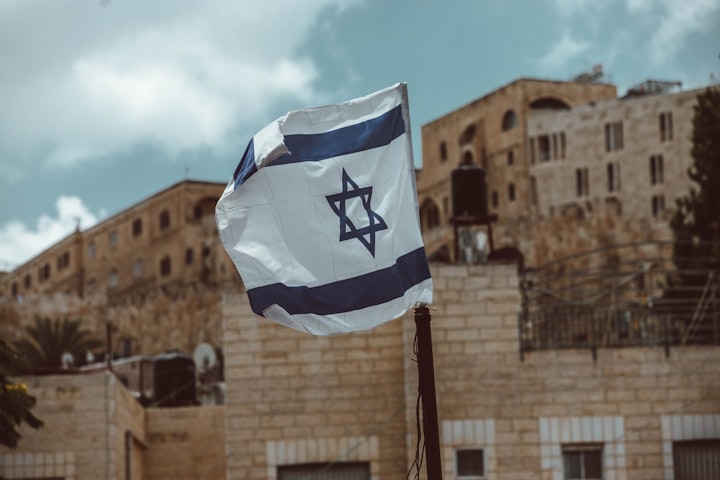The American Dream... on Steroids!
A tale of a peasant's majestic rise...

There was once a boy called Zhu Yuanzhang...
He was to the world at large, just another poor boy. One lost amongst the countless other peasant farmers growing an existence on rented land in fourteenth century China.
The gloomy presence of poverty had cast a shadow over Zhu and his family from the year dot. In fact, they were so poor that his parents had been forced to give up many of their children, for adoption and concubinage, as they simply hadn’t enough food to feed them all. Still, they toiled day in and day out, acquiring callused feet and aching joints as they laboriously tended to their crops, praying that the land’s harvest would allow them to see another day.

In the summer of 1344 though, the heavens severed ties with them.
The area in which Zhu’s family lived was hit by drought, cutting the crop yield down by a huge margin. That was only the beginning of the problem though — what crops were left, were feasted upon by swarms of locusts, leaving the masses with very little food. If that wasn’t enough, a plague swept the land and killed off much of the already starving, destitute peasants. Zhu’s remaining family were amongst those to be struck by the reaper’s scythe, leaving him all alone in the world at just sixteen years old.

So he sat, a penniless and starving teenager, surrounding by the decaying bodies of his parents and elder brother.
Zhu pleaded with the landlord for a little land to bury his family, but his request was angrily rebuffed. With the help of a kindly neighbour though, he managed to get them wrapped in white cloth and buried in shallow graves. Unable to sustain himself with farming and remembering that his father had promised him to a monastery, Zhu decided to keep that promise for him and set off for Huangjue Temple.

The food shortage affected everyone though, monasteries no exception. As a result, Huangjue Temple hadn’t enough rations to support any new residents, so the monks decided to reinvent Zhu as a vagrant by giving him a bamboo hat and an earthenware bowl, sending him out to wander throughout the vast lands of China in search of food.
For the next few years, Zhu’s mind was progressively opened up as he witnessed his motherland’s plight along his journey. Her Mongol violators you see, had forcibly seized the land and installed themselves as the supreme caste atop the ancient, native culture. By the time our vagabond was on his travels, the Mongol hegemony was unwinding due to political infighting, causing fractures which birthed dissension and civil unrest. It would be during this time, whilst bandits and rebels were emerging furiously around him and working up a storm of severance, that Zhu would meet his destiny.

While Zhu was surviving on scraps of food and sleeping in outbuildings, and roughing it out in the wilderness, he was also making acquaintances with the most vibrant of the dissidents — the Red Turbans.
The Red Turbans were originally a network of secret societies that had sprung up following particular religious concepts from Western Asia finding their way into China via the Silk Road. These societies eventually coalesced into the White Lotus, a single anti-Mongol movement under the power of a monk called Peng Yingyu, who had changed their signature colour from white to red upon their second, failed attempt at rebellion. From thereon, they became famous for their red bandanas, earning them their moniker.
After his episode as a beggar, Zhu returned to the monastery to become literate. His time there wouldn’t last long though, as the mistrustful government believed that the monks were consorting with the rebellious elements, and so had the monastery razed to the ground.

Zhu decided to take up arms with his Red Turban friends and joined as a corporal at the age of twenty-four. Guo Zixing, leader of the rebel force, instantly recognised Zhu’s best qualities — that he was a great judge of character who had the knack of persuading men to join the cause, whilst also being brave and relentless in battle. As a result, Zhu quickly rose to become second-in-command under Guo, quickly and skilfully taking charge of larger and larger forces. So capable that he was, Guo became jealous and ended up coming to resent the young Zhu.
In what could be construed as a tactical move, Zhu married into Guo’s family and regained his favour.
After Guo’s death, Zhu took over as general and continued to have success after success in battle. One by one, he took down the upstart generals who faced him and recaptured the great cities of China, all the while demanding that his men not plunder and maintain good conduct.
These high moral standards, combined with his administrative prowess and political nous, would carry him to the very top.

In 1368 and now forty, Zhu Yuanzhang assumed the mandate of heaven and became the Hongwu Emperor, ushering in the Ming Dynasty and consigning the Mongol-led Yuan Dynasty to the history books. The Ming Dynasty being of course, a highlight in China’s history, as it was a time of great agricultural innovation, artistic splendour and military conquest.
To think that this ordinary working boy would become ruler of China… it truly is the American Dream on steroids.






Comments
There are no comments for this story
Be the first to respond and start the conversation.